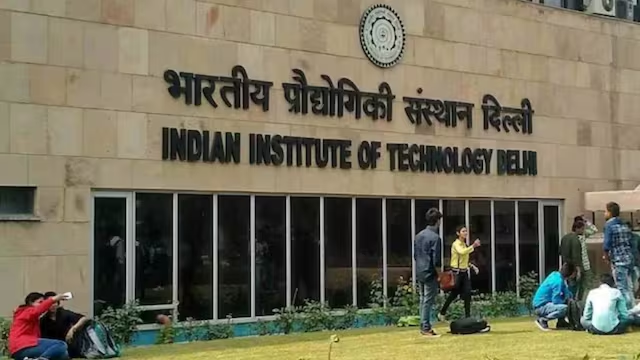
IIT Delhi Surpasses IIT Bombay, Becomes India’s Top-Ranked University in QS World Rankings
IIT Delhi in this historic shift, has emerged as India’s top-ranked university in the QS World University Rankings 2026, surpassing long-time frontrunner IIT Bombay. This marks the first time in eight years that IIT Delhi has claimed the top national spot.
Globally, IIT Delhi soared 27 places to reach 123rd position, improving significantly from last year’s rank of 150. In contrast, IIT Bombay dropped 11 places, landing at 129—despite having achieved India’s best-ever rank of 118 last year, still shy of breaking into the global top 100.
This year’s rankings saw over 1,500 universities worldwide being evaluated. Among them, India secured the fourth-highest representation with 54 institutions making the cut—up from just 11 in 2015—a staggering 390% increase in a decade. The only countries with more universities on the list were the United States (192), United Kingdom (90), and China (72).
Why Did IIT Delhi Rise?
The QS rankings attributed IIT Delhi’s success to standout performance in several key areas:
- Employer Reputation: Up by 23 places
- Citations per Faculty: A leap of 40 places
- Employer Outcomes: Rose by 21 spots
- Sustainability: A massive jump of 252 places
“Sustainability” is QS’s newest metric, still evolving and now based on over 50 indicators, such as environmental impact, social responsibility, and governance. IIT Delhi outshone IIT Bombay here with a score of 79.9 vs. 75.2.
The institute also performed better in:
- Citations per Faculty: 93.1 (Delhi) vs. 82.9 (Bombay)
- International Student Ratio: 6.3 (Delhi) vs. 1.5 (Bombay)
- International Research Network: 66.9 (Delhi) vs. 46.6 (Bombay)
Where IIT Bombay Still Leads
Despite IIT Delhi’s overall success, IIT Bombay retained an edge in three crucial metrics:
- Academic Reputation
- Employer Reputation
- Employment Outcomes
For example, IIT Bombay scored 72.6 in academic reputation compared to IIT Delhi’s 50.5.
Voices from the Campus
Prof. Vivek Buwa, Dean of Planning and head of rankings at IIT Delhi, highlighted the institute’s strategic focus on impactful research and global partnerships.
“The rising number of citations indicates how widely our faculty’s work is used in the academic community,” said Prof. Buwa. He also credited government support, including Rs 200–300 crore worth of research infrastructure, and collaborations with global universities, for elevating IIT Delhi’s research output.
Other Top Indian Universities in the QS 2026 Rankings
Besides IIT Delhi and Bombay, only IIT Madras also broke into the top 200 globally, jumping to rank 180 from 227 last year.
Here’s a look at other Indian institutions in the top 10 nationally:
- IIT Kharagpur: 215
- IIT Kanpur: 222
- Indian Institute of Science (IISc), Bangalore: 219 (down from 211)
- Delhi University: 328 (unchanged)
- IIT Guwahati: 334
- IIT Roorkee: 339
- Anna University: 465 (a significant drop from 383)
Of these, five universities improved their rankings, while four experienced a decline.
India’s New Entrants and Private University Growth
India also added eight new institutions to this year’s rankings—more than any other country. Interestingly, seven of these are private universities, including:
- Lovely Professional University (901–950)
- Kalinga Institute of Industrial Technology (1001–1200)
- Ashoka University and Shiv Nadar University (1201–1400)
- Christ University, Bengaluru (1401+)
- IIT Gandhinagar (801–850) – the only public new entrant
QS noted that some of these institutions either met the eligibility criteria for the first time or improved their data reporting to qualify.
Metric-Specific Achievements
While no Indian university made it into the top 100 globally for academic reputation—the most heavily weighted metric at 30%—many excelled in niche areas:
- Citations per Faculty: IISc ranked 15th globally, while Anna University was 23rd.
- Employer Reputation: IIT Bombay stood out at rank 39.
- Employment Outcomes: Only Delhi University and Mumbai University made it to the global top 100.
India’s upward trajectory in global rankings—led this year by IIT Delhi’s rise—is a clear indicator of its growing stature in the international education space. With strategic research investment, increased global collaboration, and better data transparency, Indian universities are steadily closing in on global benchmarks.
Also Read: IGNOU and WHO Launch Healthcare Waste Management Certificate Program
Also Read: RSOS Result 2025 OUT Live: Rajasthan 10th, 12th open school results declared